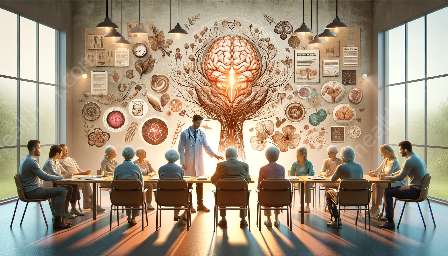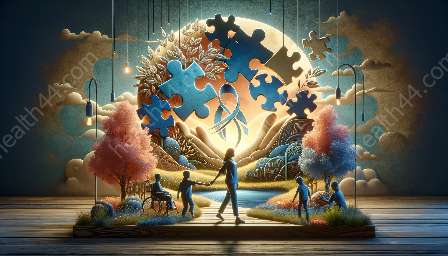Autism spectrum disorder (ASD) is a complex and diverse set of neurodevelopmental conditions that impacts individuals in unique ways. It affects social interaction, communication, and behavior, and can present challenges in various aspects of life. In this article, we will explore the different aspects of ASD, including its symptoms, causes, diagnosis, and available treatments.
Symptoms of Autism Spectrum Disorder
ASD is characterized by a wide range of symptoms that can vary in severity. Some common signs of ASD may include:
- Difficulty in social interactions and forming relationships
- Repetitive behaviors or rituals
- Sensory sensitivities
- Difficulties in communication, including delayed language development
- Restricted interests
It's important to note that the presentation of symptoms can differ widely among individuals with ASD, leading to the term 'spectrum' in the disorder's name.
Causes of Autism Spectrum Disorder
The exact cause of ASD is not fully understood, and it is likely to involve a combination of genetic and environmental factors. Research suggests that genetic mutations, advanced parental age, and certain prenatal factors may contribute to the development of ASD. However, it's important to note that ASD is not caused by environmental factors such as vaccines, despite widespread misconceptions.
Diagnosis of Autism Spectrum Disorder
Diagnosing ASD involves a comprehensive evaluation of an individual's behavior, development, and communication. Healthcare professionals, including pediatricians, psychologists, and developmental specialists, may conduct assessments to determine if an individual meets the criteria for ASD as outlined in the Diagnostic and Statistical Manual of Mental Disorders (DSM-5).
Treatments for Autism Spectrum Disorder
While there is no cure for ASD, early intervention and appropriate support can significantly improve an individual's quality of life. Treatment options may include:
- Behavioral therapies to improve social and communication skills
- Sensory integration therapy to address sensory sensitivities
- Pharmacological interventions to manage associated symptoms, such as anxiety or attention difficulties
- Social skills training to enhance interpersonal interactions
It's essential for individuals with ASD to receive personalized, multidisciplinary support that addresses their specific needs and strengths.
Impacts of Autism Spectrum Disorder
ASD not only affects individuals diagnosed with the disorder, but also has significant impacts on their families, caregivers, and society as a whole. It's crucial to raise awareness and promote acceptance and inclusion for individuals with ASD, as they have unique abilities and perspectives to contribute to the world.
Conclusion
Autism spectrum disorder is a complex condition that requires understanding, support, and advocacy. By increasing awareness and acknowledging the diverse experiences of individuals with ASD, we can create a more inclusive and supportive environment for everyone.















































